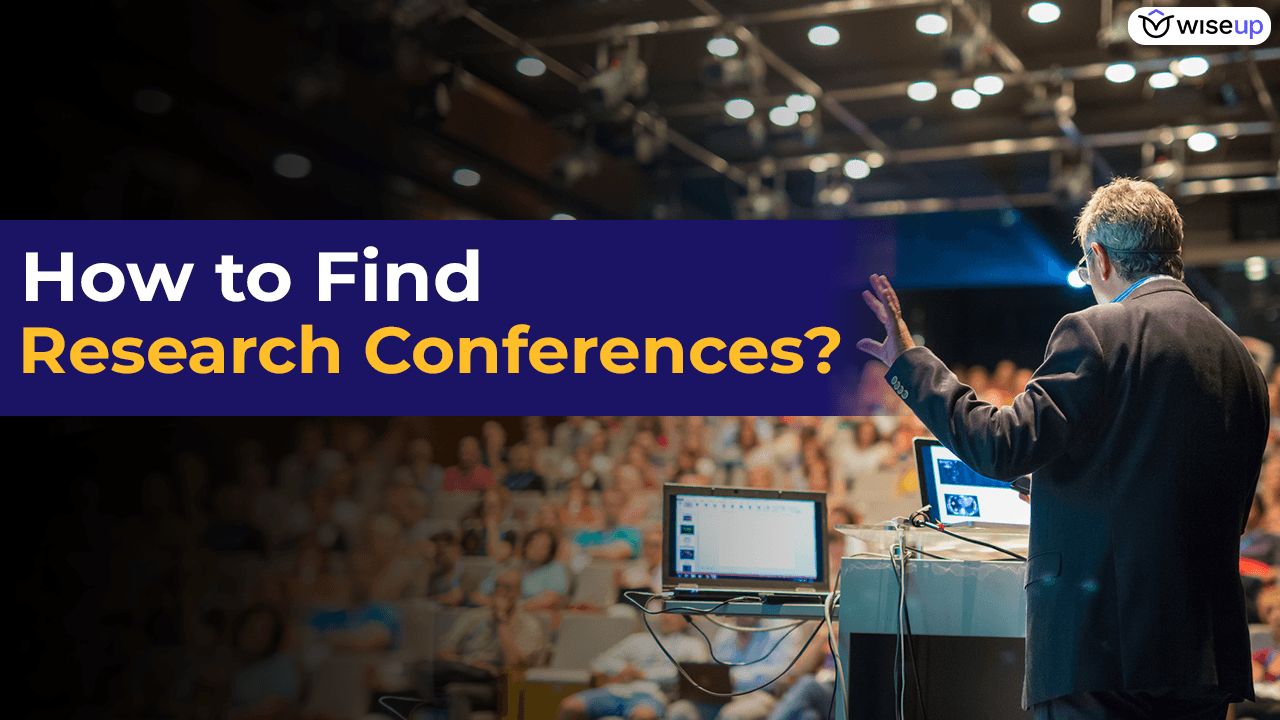Presenting your research at conferences boosts your skills and connections. But how to find research conferences that suit your work? This blog shares four practical ways to identify reputable events that align with your research, helping you gain recognition and build valuable networks.
1. Reputed Publication Houses
One of the easiest ways to find a research conference is through the publication houses that publish your papers. Leading publication houses such as IEEE, Elsevier, and ACS often host conferences globally.
For example, you can simply search for “IEEE conferences” on Google, and it will take you to their website. Once there, you can filter conferences by location (like India), topic, and dates, and find out when you need to submit your abstract. The steps are shown in the below images.
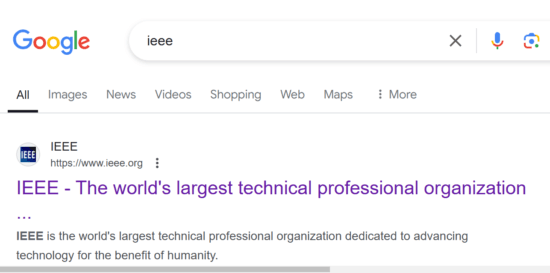
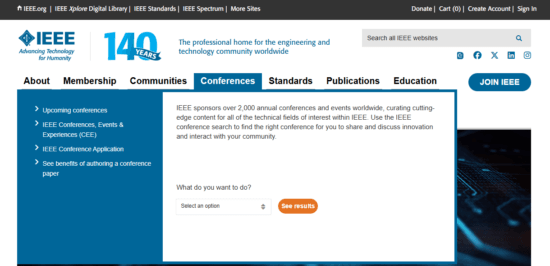
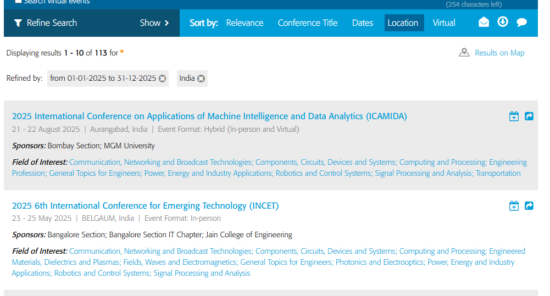
If you’re just starting in your research career and are unsure about which publication houses are relevant to your field, a simple trick is to look at the references in research papers.
Pay attention to the publishers of the journals where the research is published. This will help you identify 4-5 relevant publication houses, which you can then use to search for conferences.
For example in the below screenshot, we can clearly see that the research paper is published in ACS Journal.
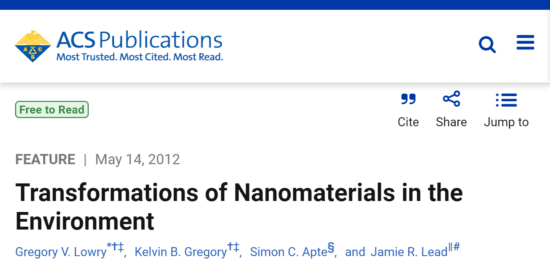
2. Search Through Leading Institutions
Another reliable way to find reputable conferences is by looking at top institutions. For example, in India, conferences hosted by IITs or NITs are typically well-regarded.
Simply search for your broad research area (e.g., “nanotechnology conference NIT India 2025”) on Google, and you’ll find conferences hosted by such institutions. These conferences are usually a great choice as they attract high-level participants and researchers.
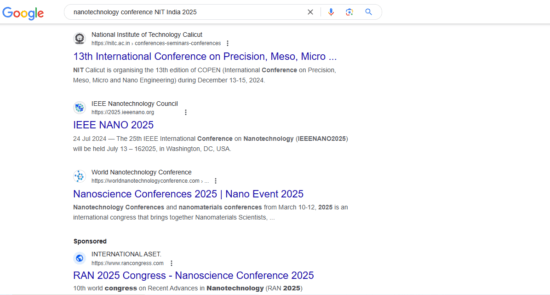
3. Leverage Your Research Network
Your academic network—professors, postdocs, PhD students, and other researchers—can be one of the best resources for finding quality conferences.
Your research community can also point you to specific websites or other platforms that cater to your field. Don’t hesitate to ask around!
Often, they’re already familiar with key events and may recommend conferences you haven’t come across. For example, when I presented my research at CHEMCON, a reputable Chemical Engineering Conference in India, it was my professor who recommended it to me.

4. Avoid Risky Websites
While many people turn to general websites to find conferences, I don’t recommend them. These platforms sometimes list conferences that aren’t reputable, making it difficult to distinguish between legitimate events and fake ones. Instead, stick to the three methods mentioned above to ensure that the conferences you find are credible.
I hope these tips help you find the perfect conference for your research. If you have any other suggestions or know of helpful websites for discovering conferences, please share them in the comments below.
Lastly, if you’re interested in learning how to write a research paper that can get accepted at conferences, check out our course: A-Z of Research Paper Writing & Presentation. This course will guide you through the step-by-step process, including how to craft an impactful abstract.
Good luck with your research journey, and I wish you all the best!
